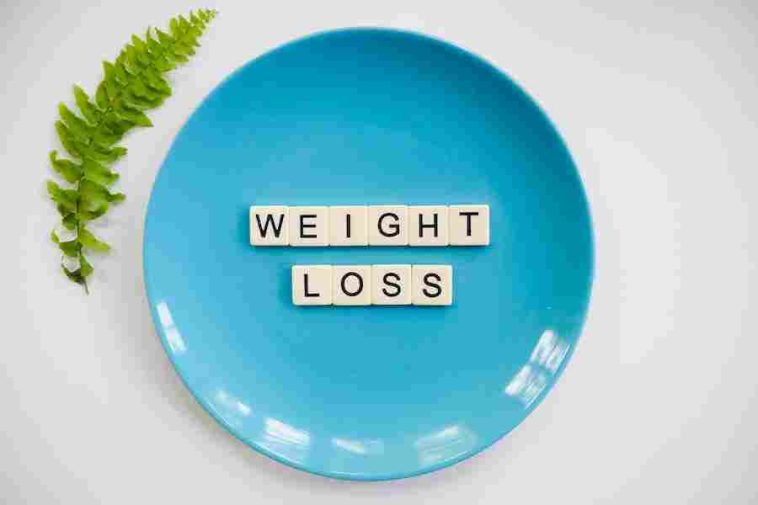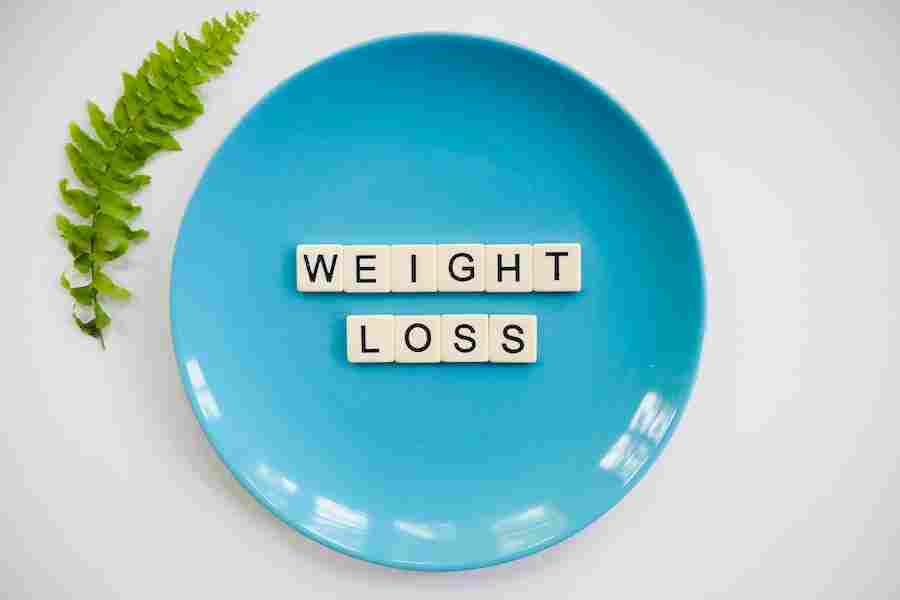Have you ever heard someone say throwing up after eating helps you lose weight? Perhaps you’ve even considered doing it yourself. After all, it seems easy to shed some pounds quickly. But is it? Before you take this extreme measure, it’s essential to understand the truth behind this dangerous myth. This article will discuss the truth behind the idea that throwing up helps you lose weight and why this is not a healthy or sustainable way to manage your weight. We’ll explore the risks associated with this practice, including the physical and psychological consequences and the potential for developing an eating disorder. Understanding the facts about throwing up weight loss will help you make the best decision for your health.
Does Throwing Up Help You Lose Weight?
No scientific evidence supports the claim that throwing up helps you lose weight. Throwing up can harm your health and lead to dehydration, electrolyte imbalances, and other serious health problems. If you are trying to lose weight, the best way to do so is by eating a healthy diet and exercising regularly.

The Truth Behind the Myth
It’s not a healthy way to lose weight
The idea that throwing up after eating helps you lose weight is entirely false. This myth is based on the fact that you will burn more calories if you vomit after eating than if you eat without vomiting. However, the number of calories burned from vomiting is minimal and does not amount to much in terms of long-term weight loss. To lose weight, you need to consume fewer calories than your body needs for energy. This can be achieved by consuming lower-calorie foods and increasing exercise so that your body burns more calories than it takes in from food.
It’s not sustainable or healthy for your body
The human stomach and digestive system are not designed to handle food “thrown up” into them. If food comes back into the stomach, it can cause pain, nausea, and vomiting due to gastric reflux (also known as heartburn). This can lead to further vomiting, which can be extremely painful and damaging to the lining of the esophagus. Vomiting also causes your body to lose valuable nutrients for energy and good health. It’s important to remember that losing weight is not just about how much you weigh on the scale—it’s also about your overall health and well-being.
You will develop an unhealthy relationship with food due to vomiting for weight loss
Throwing up after eating is an extreme way to try to lose weight, and it sets you up for feeling ashamed, guilty, or disappointed in yourself if you don’t see immediate results. When you start throwing up after eating, it will become a habit that can be difficult to break even if you find that the practice doesn’t work for you or that it has adverse side effects on your body or mind. You may continue this practice even though you know it’s not the healthiest way to lose weight.
It can cause serious health problems like heart disease and diabetes
Throwing up after eating causes your body to lose vital nutrients, leading to malnutrition and a weakened immune system. This can place you at risk for developing heart disease and diabetes, and other severe medical conditions that may not be immediately visible. Malnutrition can also cause mood swings, memory loss, and depression, all symptoms of an eating disorder. If you are throwing up for weight loss or have already developed an eating disorder, it’s essential to seek help from a professional who can guide you through the process of recovery so that you regain your health and develop a healthy relationship with food again.
The Physical Consequences Of Throwing Up For Weight Loss
It Can Cause Damage to the Esophagus
First, it’s essential to understand that throwing up can cause damage to your body. When you vomit, you force your body to push food and fluids back up through your esophagus and out of your mouth. The esophagus is a tube-like structure that connects the throat to the stomach. Throwing up can cause damage to this tube if the food or fluids are too forceful or if they are vomited too frequently. This can lead to a condition called Barrett’s esophagus, which is caused by chronic acid reflux (also known as GERD). In Barrett’s esophagus, cells in the esophagus lining are replaced with new cells similar to those found in the stomach lining. This condition may eventually lead to cancer of the esophagus if left untreated and/or uncontrolled.
It Can Cause Damage to Your Teeth
The acids in your stomach are very strong and can cause damage to your teeth. If you vomit and food or liquid comes into contact with your teeth, it can also cause damage. Dentists often advise patients not to brush their teeth after they vomit.
It Can Cause Dehydration
Throwing up also causes dehydration, a condition where the body does not have enough water. When dehydrated, you’re at risk for many dangerous medical conditions, such as heat stroke and heart failure. Dehydration can be caused by a lack of water intake or by vomiting, resulting in the loss of fluids without replacement. If you throw up frequently, it’s essential to drink plenty of water to avoid dehydration.
It Can Cause Weight Gain After You Stop Throwing Up
Throwing up after eating can lead to weight gain after you stop throwing up because it disrupts your regular eating habits and causes your body to store more fat. Specifically, throwing up after eating causes your body to produce extra insulin to break down the food. As a result, you may gain weight because the extra insulin causes your body to store more fat.
It Can Cause Nutrient Loss
Throwing up can also cause nutrient loss. This is because when you vomit, it removes the nutrients from the food and sends them back up through your esophagus and out of your mouth instead of absorbing them into your body. It’s important to note that throwing up does not remove all of the nutrients from food; however, it does remove some of them, which is why it’s essential to replace lost nutrients by eating healthy foods or taking vitamins after throwing up.
The Psychological Consequences
It’s a sign of an unhealthy relationship with food
Throwing up your food signifies that you have an unhealthy relationship with food. It indicates that you can either not control your impulses or don’t trust yourself to properly manage your eating. If you want to improve your relationship with food and learn how to eat in a healthy way for your body and mind, throwing up will never be the answer.
It can lead to depression and anxiety
Throwing up after eating creates guilt and shame, leading to depression and anxiety. These feelings can also create a negative self-image, making it difficult for you to develop healthy relationships with others in the future. It is important to remember that there is no such thing as a quick fix regarding weight loss — any practice or behavior that claims otherwise should be avoided at all costs! Healthy weight loss takes time, patience, and a lot of hard work.
It can lead to an eating disorder
By throwing up after eating, you are essentially punishing yourself for eating, which can lead to an unhealthy relationship with food and the development of an eating disorder. If you do this regularly and become obsessed with weight loss, it is easy to develop a dangerous obsession with food, calories, and body image. This dangerous obsession is the hallmark of anorexia nervosa, bulimia nervosa, and binge eating disorder, all severe mental illnesses that can have lasting effects on your life. Throwing up is not the answer! There are healthier ways to lose weight that will help you maintain a healthy relationship with food so that you don’t have to resort to this extreme behavior to shed pounds.
How To Manage Your Weight In A Healthy Way
Eat a Healthy Diet
Eating healthy is the best way to manage your weight, as well as your overall health. People who eat a diet rich in fruits, veggies, whole grains, lean proteins, and healthy fats will tend to have a healthier body weight than those who eat an unhealthy diet. Eating plenty of fiber is also recommended because fiber helps fill you up and keeps you feeling full. In addition to eating healthy foods, it’s also essential to avoid eating too much or too little. Moderation is key.
Exercise Regularly
Exercising regularly is another great way to maintain healthy body weight. Although exercise alone won’t necessarily lead to weight loss, it can help keep your metabolism working at its best, so you burn more calories throughout the day even when you’re not exercising. If you have trouble finding time for exercise during the weekdays, consider scheduling it for the weekends when you don’t have as many obligations.
Set Realistic Goals for Yourself
Setting realistic goals for yourself when it comes to weight loss and weight management is essential. For example, expect to lose a little weight quickly. If you’re trying to lose more than two pounds per week, you should consult your doctor first. Losing too much weight too quickly can be unhealthy and will likely result in the weight returning as soon as you stop dieting or exercising excessively. On the other hand, if you want to lose a pound or two every few weeks or so, that’s perfectly healthy and realistic.
Get Support From Your Friends and Family
If you’re trying to lose weight, it’s a good idea to have support from your friends and family. Having the support of others will help keep you on track and keep you motivated. If you’re having trouble sticking to your diet or exercise plan, consider asking your friends or family to help you.
Don’t Use Vomiting for Weight Loss
Vomiting is not a safe way to lose weight, nor does it work well in the long run. In most cases, people will regain the weight they lost after vomiting because they didn’t learn how to change their eating habits in a sustainable way. What’s more, vomiting can be dangerous if it’s done frequently over a long period because it can lead to electrolyte imbalances, resulting in heart problems and even death. It’s also important to understand that no evidence supports claims that vomiting causes fat loss or helps people lose weight faster than other methods of dieting and exercise.
Conclusion
The myth that throwing up after eating helps you lose weight has been around for decades, and it is rooted in the fact that it is one of the quickest ways to lose a large amount of water weight. Unfortunately, this weight is usually regained as soon as you eat again. Repeatedly throwing up after eating can cause long-term damage to your body, including your teeth, esophagus, and other vital organs. It can also lead to feelings of shame and guilt, which can lead to disordered eating patterns. It can also increase your risk of developing an eating disorder, like anorexia nervosa or bulimia nervosa. If you want to lose weight and be healthy, you can achieve these goals by creating a balanced diet and exercise routine that works for you.





